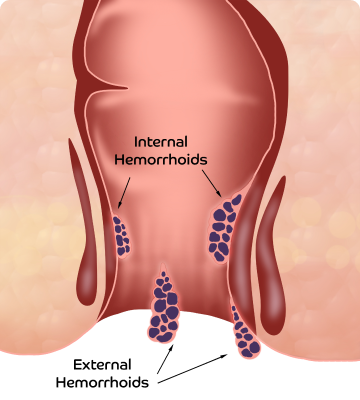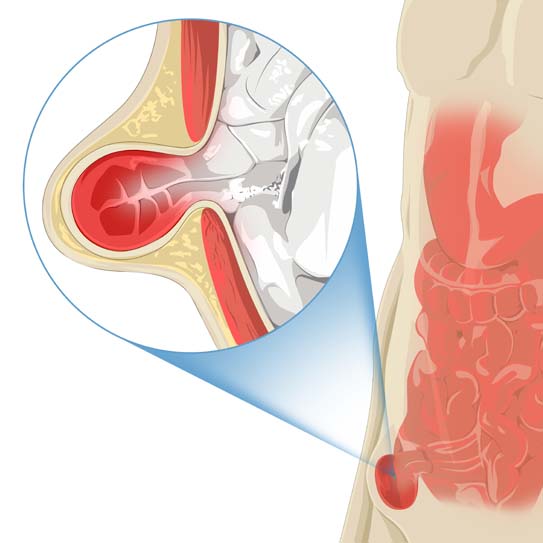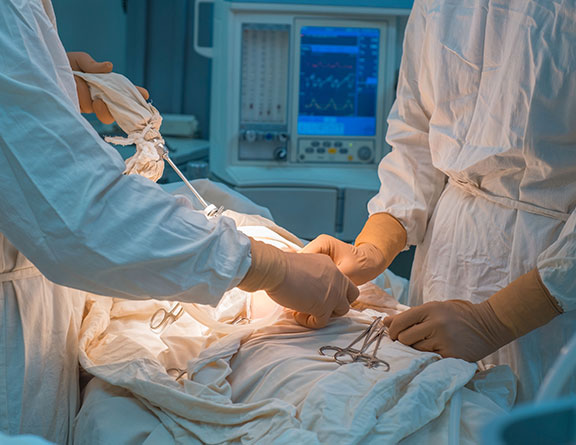What is the difference between femoral and inguinal hernia?
Inguinal hernia and femoral hernia can arise in both males and females. And in some cases, it is quite difficult to distinguish between them as they occur around the same region.
The key difference between femoral and inguinal hernia is the part from where the intestine bulges out. In the case of an inguinal hernia, the intestine enters the abdominal cavity through an opening in the inguinal canal. It is the passage that allows the spermatic cord and the testicle to descend. Normally, the inguinal canal closes after birth but in some cases, weak spots in the muscle wall are created that causes problems later in life. Inguinal hernias mostly occur in men due to this reason.
Femoral hernias are also found in the groin region but they arise due to different reasons. The femoral artery and vein pass through the femoral canal, which is an opening between the abdominal floor and the upper leg (thighs). If there is a weak spot in the femoral canal, the intestine may bulge out and cause problems. Femoral hernias are more common in women as they have a different bone structure around the pelvis region.
Both types of hernias have similar symptoms and have the potential to cause serious complications. Therefore, if you notice a bulge anywhere in your body, it is crucial that you get it checked and seek proper treatment.
Is inguinal hernia treatment possible without surgery?
A hernia is a condition that doesn’t go away on its own, and neither can be repaired without intervention.
In the best-case scenario, hernia treatment can be delayed if the bulge is not large and there are no other symptoms present. At this stage, the doctor will recommend that the patient manages the occasional pain with the help of a hernia belt or truss that will prevent the organ from entering the abdominal cavity.
This way, the patient can reduce the symptoms and also stop/delay the progression of the hernia. Ultimately, to ensure that inguinal hernia doesn’t lead to life-threatening complications, surgical repair will be required.









.svg)









